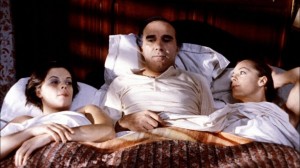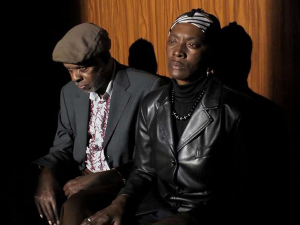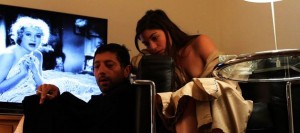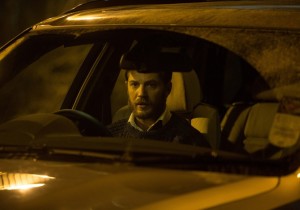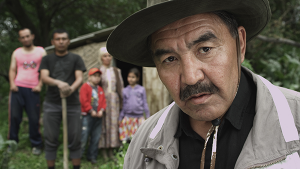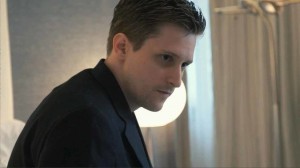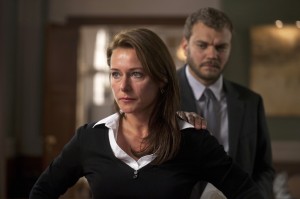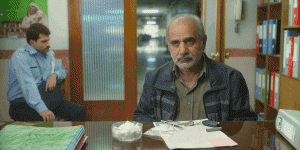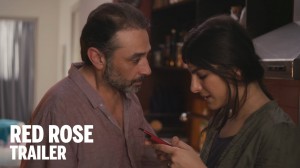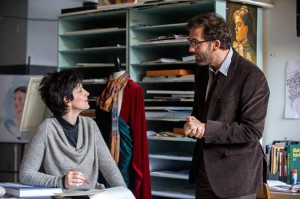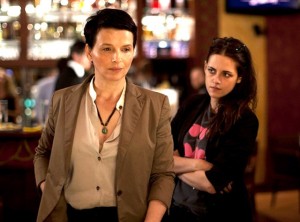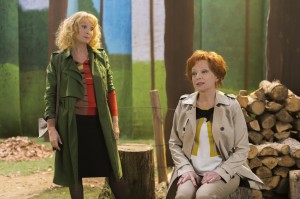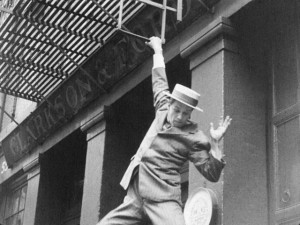Le Trio Infernal, Un Homme Qui Dort, Steppenwolf
From Oui (December 1974). – J.R.
Le Trio lnfernal. It’s the Christmas season and Michel Piccoli shoots
a man in the eye — straight through a newspaper he’s reading — while
downstairs, Romy Schneider is finishing off Andrea Ferreol with
similar dispatch. The bodies are stripped clean and plunked into
adjacent bathtubs, which Piccoli promptly fills with sulfuric acid.
Mascha Gomska, Schneider’s sister — who completes the infernal
trio of murderers who slaughter people for their life insurance –
barfs on the living-room carpet, while offscreen, excited by all
these gay and yummy events, Schneider is giving Piccoli an
impromptu blowjob in the bathroom. Later on, after the bodies have
decomposed, Piccoli dons a gas mask, ladles the slop into pails,
then empties the heady stew outdoors while one of the girls is
shown eating spaghetti. Excessive? This Grand Guignol comedy is
nothing but, as it chronicles the exploits of three glamorous
monsters butchering their way to wealth, with lots of kinky sex
on the way. Francis Girod, a producer-turned-director, exhibits an
unusual amount of expertise in his first film. But most of the show
belongs to Piccoli, who dances through all of the Thirties décor
performing a veritable concerto of comic invention. And for
sound-effects freaks, the bathtub glop is recorded so lovingly as it
gurgles into a pit that you can almost taste it. Read more

